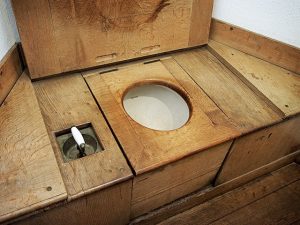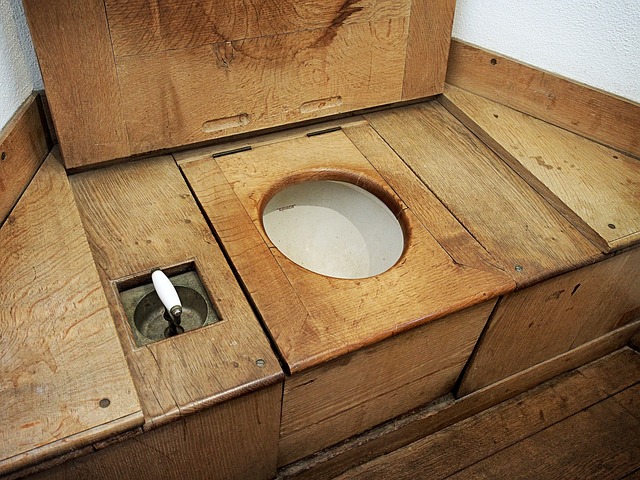Bowel anxiety is a condition that affects millions of people worldwide. It is a type of anxiety disorder that causes individuals to experience intense fear and worry about their bowel movements.
This condition can have a significant impact on daily life, causing individuals to avoid social situations and experience physical discomfort. In this article, we will explore what bowel anxiety is, its causes, symptoms, and how to manage it.
What is Bowel Anxiety?
 Bowel anxiety is a type of anxiety disorder that causes individuals to experience intense fear and worry about their bowel movements. It is also known as toilet phobia or parcopresis. Individuals with bowel anxiety may feel embarrassed or ashamed about their condition, which can lead to social isolation and avoidance of certain situations.
Bowel anxiety is a type of anxiety disorder that causes individuals to experience intense fear and worry about their bowel movements. It is also known as toilet phobia or parcopresis. Individuals with bowel anxiety may feel embarrassed or ashamed about their condition, which can lead to social isolation and avoidance of certain situations.
Bowel anxiety differs from other anxiety disorders in that it is specific to bowel movements. Individuals with this condition may experience panic attacks or extreme anxiety when they are in situations where they need to use the bathroom, such as at work or in public places.
Causes of Bowel Anxiety
There are several factors that contribute to bowel anxiety. These include past traumatic experiences, such as being bullied or humiliated in public restrooms, as well as genetic predisposition and environmental factors.
Common triggers for bowel anxiety include stress, travel, illness, and changes in routine. Individuals with this condition may also have a history of constipation or diarrhea, which can exacerbate their symptoms.
Symptoms of Bowel Anxiety
Bowel anxiety can cause a range of physical, emotional, and behavioral symptoms. Physical symptoms may include abdominal pain, bloating, constipation, diarrhea, nausea, and vomiting.
Emotional symptoms may include feelings of shame, embarrassment, guilt, and low self-esteem. Individuals with bowel anxiety may also experience depression and social isolation due to their condition.
Behavioral symptoms may include avoiding social situations where they may need to use the bathroom or spending excessive amounts of time in the bathroom to ensure that they have completely emptied their bowels.
How to Manage Bowel Anxiety
There are several techniques that individuals with bowel anxiety can use to manage their symptoms. These include relaxation techniques, cognitive-behavioral therapy, and medications.
Relaxation techniques such as deep breathing, meditation, and yoga can help individuals with bowel anxiety to reduce their stress levels and manage their symptoms. Cognitive-behavioral therapy is a type of talk therapy that can help individuals to identify and change negative thought patterns that contribute to their anxiety.
Medications such as anti-anxiety medications and antidepressants may also be prescribed to help manage symptoms of bowel anxiety.
Diet and Lifestyle Changes to Help Overcome Bowel Anxiety
In addition to these techniques, individuals with bowel anxiety may benefit from making diet and lifestyle changes. A healthy diet that is high in fiber and low in processed foods can help to regulate bowel movements and reduce symptoms of constipation or diarrhea.
Exercise and physical activity can also help to reduce stress levels and improve overall health. Stress management techniques such as mindfulness meditation, journaling, or talking with a therapist can also be helpful in managing symptoms of bowel anxiety.
Seeking Professional Help for Bowel Anxiety
If you are experiencing symptoms of bowel anxiety that are impacting your daily life, it may be time to seek professional help. A mental health professional such as a therapist or psychiatrist can help you to identify the underlying causes of your anxiety and develop a treatment plan that is tailored to your needs.
Treatment options for bowel anxiety may include cognitive-behavioral therapy, medication management, or a combination of both. Your mental health professional will work with you to determine the best course of treatment for your individual needs.
Tips for Living with Bowel Anxiety
Living with bowel anxiety can be challenging, but there are several coping strategies that can help you to manage your symptoms. These include:
- Developing a support system of friends and family who understand your condition and can offer emotional support
- Practicing self-care activities such as taking a warm bath, reading a book, or listening to music to help reduce stress levels
- Using positive affirmations or visualization techniques to help reduce anxiety and promote relaxation
Bowel anxiety is a condition that can have a significant impact on daily life. However, with the right treatment and coping strategies, individuals with this condition can learn to manage their symptoms and improve their quality of life.
If you are experiencing symptoms of bowel anxiety, it is important to seek professional help and take control of your condition. Remember, you are not alone, and there is help available.








